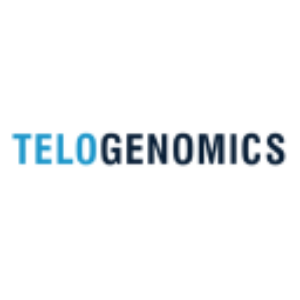Telo Genomics Initiates MRD Clinical Trial for Multiple Myeloma Patients
Toronto, Ontario--(Newsfile Corp. - February 13, 2024) - Telo Genomics Corp. (TSXV: TELO) (OTCQB: TDSGF) (the "Company" or "Telo") is pleased to announce that it has received the first patient sample for its clinical trial monitoring multiple myeloma ("MM") disease progression in post-treated patients. The study is being conducted in collaboration with McGill University and the Jewish General Hospital in Montreal, Canada. The trial is listed on the website of the National Library of Medicine (clinicaltrials.gov): NCT05530096 (https://clinicaltrials.gov/ct2/show/NCT05530096).
The previously announced study will be conducted prospectively on diagnosed MM patients eligible for bone marrow transplantation, aiming to measure and profile the measurable residual disease ("MRD") in these patients post transplantation. MRD refers to cancer cells that remain in the patient's system post-treatment.
MRD testing has emerged as a crucial tool in assessing treatment response and guiding therapeutic decisions in oncology. With advancements in technology and a growing emphasis on personalized healthcare, the MRD testing industry is expected to witness substantial global expansion in the coming years. The MRD global testing market size is expected to reach USD 4.1 billion by 2032 (Globe Newswire - August 14, 2023).
"We are very excited to receive the first patient sample for our MRD study," said Sherif Louis, PhD, and TELO's President & CTO. "Telo's sensitive methodology provides a unique advantage in the profiling of MRD cells on an individual basis; it has the potential to fill a critical gap in analysis of MRD and inform on disease aggressiveness, allowing clinicians to take full advantage of its prognostic power."
Telo's MRD study has two objectives that will potentially enable the development of two prognostic tests for monitoring myeloma MRD. The two objectives include: i) identify and quantify the number of MRD cells circulating in the patient's blood post marrow transplantation, over time, as an indicator of patient response to maintenance treatment; and ii) profile the isolated circulating MRD cells using the TeloView technology to assess disease aggressiveness in each individual MRD cell. The two MRD tests can be utilized independently or concurrently and are designed to be liquid biopsy-based, which is at the forefront of precision medicine.
Monitoring MRD in oncology is evolving to be an important prognostic tool for monitoring treated patients to assess the effectiveness of the treatment in individual patients. Further, monitoring MRD in treated cancer patients can also help in identifying patients at higher risk of relapse and potentially guide response-based treatment paradigms in several cancers including MM. In North America there are approximately 170,000 MM patients (Surveillance, Epidemiology and End Results Program, National Institute of Health of the United States https://seer.cancer.gov/statfacts/html/mulmy.html) receiving treatment at any time across the different stages of the disease. Most of these patients may benefit from ongoing monitoring of treatment response using MRD assessment.
To date, the prognostic power of MRD assessment is not fully realized in the clinic for MM patients and many other cancers, due to the limited capability of current technologies, which can only inform on MRD cell count (enumeration). Enumeration alone was proven in several cancers to be inadequate in providing accurate representation of the risk of disease progression. Furthermore, each of the current MRD assessment technologies has its own technical limitation rendering it inapplicable to several patient populations.
TeloView technology employs a patented liquid biopsy enumeration methodology that will facilitate the quantification of MRD in the vast majority of MM patients. In addition, Telo's technology is unique because of it's potential to assess the genomic instability of each individual MRD cell using our TeloView platform. Consequently, genomic instability profiling has the potential to provide a more accurate assessment of disease aggressiveness beyond merely the cell count, and has the potential to more accurately inform on the risk of disease progression.
About TELO
Telo Genomics Corp. is a biotech company pioneering the most comprehensive telomere platform in the industry with powerful applications and prognostic solutions. These include liquid biopsies and related technologies in oncology and neurological diseases. Liquid biopsy is a rapidly growing field of significant interest to the medical community for being less invasive and more easily replicated than traditional diagnostic approaches. By combining our team's considerable expertise in quantitative analysis of 3D telomeres with molecular biology and artificial intelligence to recognize disease associated genetic instability, TELO is developing simple and accurate products that improve day-to-day care for patients by serving the needs of pathologists, clinicians, academic researchers and drug developers. The benefits of our proprietary technology have been substantiated in 160+ peer reviewed publications and in 30+ clinical studies involving more than 3,000 patients with multiple cancers and Alzheimer's disease. Our lead application, TELO-MM is being developed to provide important, actionable information to medical professionals in the treatment of multiple myeloma, a deadly form of blood cancer. For more information please visit www.telodx.com.
For further information, please contact:
Sherif Louis,
President & CTO
Telo Genomics
416-673-8487
www.telodx.com
Neither the TSX Venture Exchange nor its Regulation Services Provider (as such term is defined in the policies of the TSX Venture Exchange) accepts responsibility for the adequacy or accuracy of this release.
Cautionary Note Regarding Forward-Looking Statements
Certain information contained herein may constitute "forward-looking information" under Canadian securities legislation. Generally, forward-looking information can be identified by the use of forward-looking terminology such as "intends", "will", or variations of such words and phrases or statements that certain actions, events or results "will" occur. Forward-looking statements regarding the clinical efficacy of products, commercial viability of products, use of proceeds, and the ability of the TeloView® platform to deliver personalized medicine resulting in better treatments and outcomes are based on the Company's estimates and are subject to known and unknown risks, uncertainties and other factors that may cause the actual results, level of activity, performance or achievements of the Company to be materially different from those expressed or implied by such forward-looking statements or forward-looking information, including capital expenditures and other costs. There can be no assurance that such statements will prove to be accurate, as actual results and future events could differ materially from those anticipated in such statements. Accordingly, readers should not place undue reliance on forward- looking statements and forward-looking information. The Company will not update any forward-looking statements or forward-looking information that are incorporated by reference herein, except as required by applicable securities laws.

To view the source version of this press release, please visit https://www.newsfilecorp.com/release/197694








